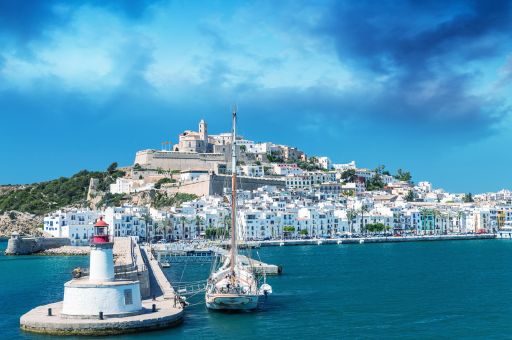The president asks to be able to recover the road agreements ‘as the only tool that allows us to plan investments in the road network in the long term’.
The president of the Eivissa Council, Vicent Marí, and the mayors of the island of Ibiza have met with the Ibizan national deputies and senators José Vicente Marí Bosó (PP), Milena Herrera (PSOE), Juanjo Ferrer (EiF in the Senate) and Miquel Jerez (PP), explained the president, Vicent Marí, who stressed that ‘beyond political differences, there are issues on which all of us who represent the flag of Ibiza are in agreement’.
In this sense, the meeting has addressed the renewal of road agreements, the problems arising from the massive arrival of boats and unaccompanied minors and the difficulties of having the services of the General Administration of the State due to the lack of staff and incomplete templates.
TDB keeps you informed. Follow us on: Facebook, Twitter and Instagram
Vicent Marí proposes a common front of all Ibizan representatives in Madrid to defend the interests of our island
About the road agreement, all the representatives agreed on the need to obtain extraordinary funding from the State for the works to improve the island’s road network, which is expected to cost more than 120 million euros in the coming years, with major works such as the total refurbishment of the road from San José to San Antonio; de Jesús in Santa Eulalia or the ‘Los Cazadores’ crossroads, among others. In this regard, the president explained that ‘in this regard, we have sent several letters to Madrid and we have made every possible effort to sign a new road agreement’ and explained that, beyond budget availability, the fact of signing a long-term agreement allowed ‘to plan a whole series of investments that, with the guarantee of receiving the money for 10 years’.
The president added that the funding due to the insularity factor, which since 2019 has improved the funding of the Balearic Government allowing agreements to be signed in road matters ‘is not a solution, as it does not allow for long-term planning, and permanent adaptation during the 10 years of the agreement, while the funding that is proposed from the short term, is a punctual and punctual’. Vicent Marí recalled that ‘Ibiza has been the only island that has complied with the entirety of the previous road agreement, which expired in 2019, and that even in the joint meetings investments were proposed for the future.
The list of works foreseen in the agreements is as follows:
In addition, the possible variants of San Rafael and San José should be incorporated. All these investments would exceed 128,555,785.93 euros.
Security and FFCCS
On the other hand, the president raised the problems arising from the lack of state officials on Ibiza, specifically the state security forces (Guardia Civil and National Police). In this regard, the town councils have expressed their concern that it should be the local police who end up carrying out the tasks of these bodies, with the difficulties that this entails, and without any compensation from the state.
In this sense, the need to promote an insularity bonus, loyalty bonus, a bonus that is difficult to cover, or similar, which would help the agents assigned to Eivissa to decide to stay, given the possibility of receiving compensation for the high cost of living on the island of Eivissa, was discussed. Likewise, the importance of the summer reinforcements, which are necessary and have made Eivissa a destination where security is valued by visitors, but which do not cover the shortfalls in staffing levels throughout the year, was also highlighted.
Immigration and unaccompanied minors
Another issue addressed at the meeting was the massive arrival of small boats and, above all, of unaccompanied minors, whose guardianship should be assumed by the Consell Insular. President Vicent Marí explained that currently 70 of the minors under the Consell’s guardianship come from this casuistry, and that this fact distorts the normal functioning of a service that ‘should be focused on attending to the unaccompanied minors, but instead, they spend more hours looking for spaces and staff to meet a demand that is constantly increasing’.
